
Monkey see Monkey do
If you ask the vast majority of those who believe in Evolution why the do so, the most common answer you will hear is “because it is scientifically proven”. Yes, there is a strong conviction within the collective consciousness that Evolution = Science = Fact. There is no need to dig deeper or look further for
This is not necessarily a criticism of those in the evolutionist camp. The same is painfully obvious with the creationists. I very much doubt that most individuals who profess to belong to a religion have ever read (let alone study) their religious text(s), or could even explain their beliefs based on said texts. This is a depressing consequence of our “critical thinking” (or lack thereof), our fierce aversion to thinking about the “bigger questions”, and ideological propaganda which we eat up like candy.
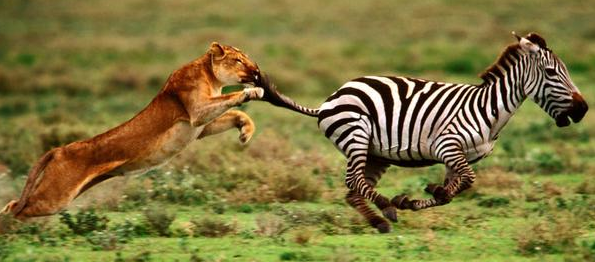
Survival of the Fittest
So then, what is Evolution? To answer this question, let’s first look at something called “Natural Selection”. The idea of advantageous genetic mutations being favoured in successive generations leading to subtle adaptations over time is a proven scientific fact. For example, if a species of bird move into a new geographic region where the seed husks are harder to open, and so those individuals with stronger beaks are more likely to eat more seeds, and therefore more likely to live long enough to have children and pass the genes for stronger beaks on to their offspring. Thus, after a number of generations, the average beak will be much stronger than their ancestors who originally moved into that new area.
Let us use a simple illustration to more clearly understand Natural Selection. With your TV, there are a number of different settings (brightness, contrast, colour mode, aspect ratio, and so on), which you experiment with to find the optimal settings for you. Perhaps you prefer watching TV late at night with the lights off, and so you might settle on a dimmer setting with slightly less contrast. However, through your experimentation with the settings, you cannot somehow create a new setting, only change the values of the existing settings.
The Theory of Evolution, however, elaborates on Natural Selection to try and suggest that, not only does it explain the changing “values of the settings”, but also that “new settings” are added, or more precisely, that new genetic code is added, not only mutated/changed. Thus, different species of fish could differ in size, shape and colour, but also (by virtue of evolution) develop a hip bone and eventually become a dog.Â
In my opinion, this is the reason why many are confused by the word “Theory of evolution”, and the idea that it is a scientific fact. To clarify, Natural Selection is a scientific fact, but Evolution is a theory which is based on that scientific fact. Unfortunately, this theory which explains speciation has become so elaborate to the extent that it is used to explain away the need for God, and to ridicule creationists. This seems nonsensical to me, as science can only hope to explain how things happen, not why things happen.
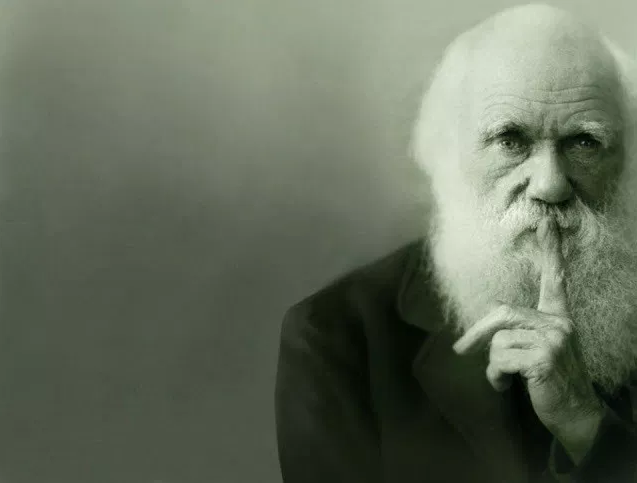
What Darwin had to say about it
In his seminal work, “The Origin of Species”, Darwin explained that in order for Evolution to occur, there are three prerequisites:
- Organisms which can reproduce
- Genetic mutation at the time of reproduction
- Competition over a scarce resource
We can all agree that these three conditions are met at the moment. But when we consider that this might not have always been the case, we are faced with the first major flaw with the theory: Where did the first cellular organism capable of reproduction come from? Before a cellular organism “developed” the ability to reproduce, two of the three requirements for evolution to exist were not met. The consequence of this is that the best we could say at this point is that evolution could be possible after the first reproducing organism(s) existed.
Darwin also acknowledged that his theory could not explain the Cambrian explosion; an event which occurred about 540 million years ago, where all current families of animals suddenly appeared in the fossil record with no transitional forms between the different animal types. Here we have major flaw number 2.
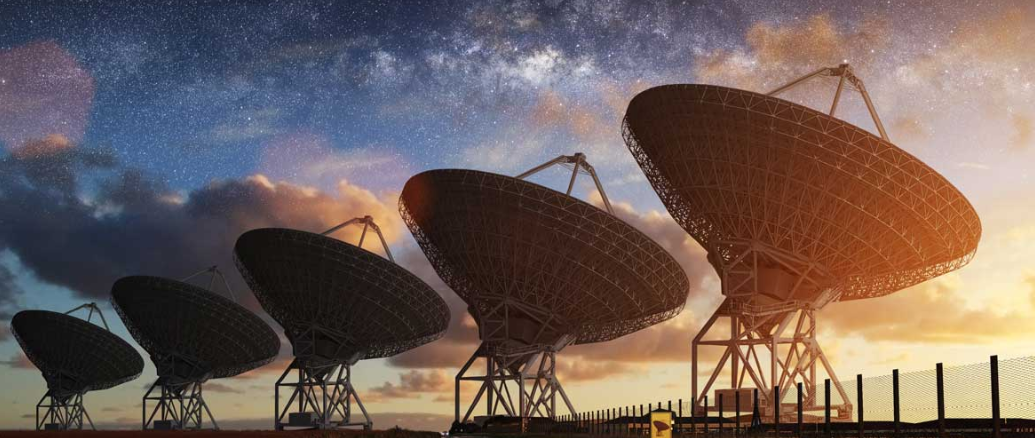
SETI should look Down not Up
SETI, or the Search for Extra-Terrestrial Life, is an initiative to scan through signals received from outer space for clues of intelligent life. Now, how does one find such proof of intelligent life from electromagnetic waves picked up from space? Basically, patterns which convey information. The white noise of space is quite random, but an alien radio signal would have intricate and complex patterns containing (possibly) decipherable information.
Although the SETI project has thus far failed to find any such sign, many might be surprised to learn that such an alien sign does in fact exist, and we have been studying it for many years. I’ll give you a clue: What is a source of huge amounts of complex information which is not
DNA is the most sophisticated data storage mechanism we know of, storing 215 petabytes of data per gram. The microscopic machinery to manipulate the data contained in the DNA is so precisely synchronised that if any part were not to work correctly, mitosis would not be possible, and again two out of three requirements for evolution would be impossible.
Thus, Evolutionary theory does not seem to be self-consistent in this instant and offers no hint of how it could possibly have
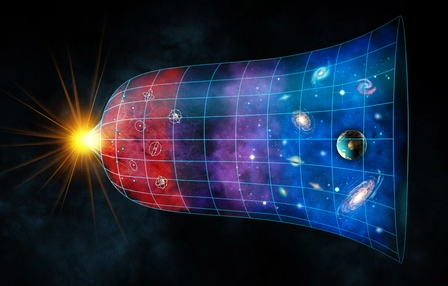
The Big Bang
Following on from this idea of beginnings, let’s talk of a moment of the first beginning; the Big Bang. Current scientific estimates put this event at about 13.7 billion years ago, where spacetime first began (General Relativity supports this as showing a spacetime singularity at time 0). The Big Bang is thought to have been caused by a large amount of energy originating from outside of the spacetime continuum. What is very interesting about this is, not only does science (and by extension, Evolution) not even hint at where this energy could come from, it ironically fits extremely well with the idea of Intelligent Design.
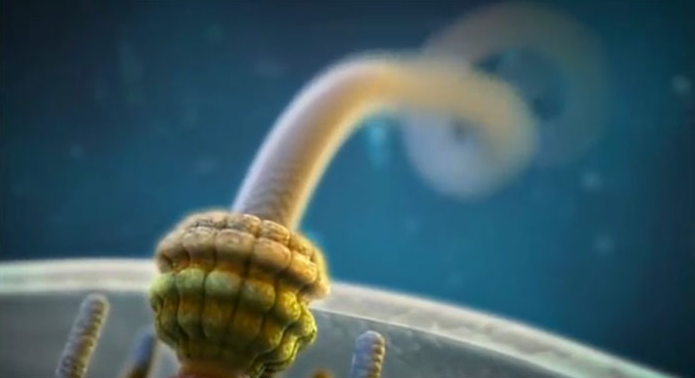
Bacterial flagellum “motor”
Irreducible Complexity
A much-debated topic between Evolutionists and those supporting Intelligent Design is that of “Irreducible Complexity“, which is an argument that states:
“certain biological systems cannot evolve by successive small modifications to pre-existing functional systems through natural selection.”
https://en.wikipedia.org/wiki/Irreducible_complexity
A famous example often cited is the bacterial flagellum, which functions like a motor, propelling the bacterium around its environment. The argument is that if just one of the many proteins which make up this motor is missing or out of place, the motor fails to function and becomes a great hindrance rather than an advantage. Therefore it could not have evolved step-by-step, as it is only evolutionary advantageous in its final form.
If you do some digging, you will discover that there has been an ongoing battle between scientists regarding this, with many theories of how supposedly irreducibly complex structures could actually be reducible. However, upon closer examination, it becomes clear that these counter-arguments are purely theoretical and hypothetical, with little to no proof that these structures are, in reality, not irreducibly complex.
To make the situation worse, Evolutionists often make the ignorant claim that Intelligent Design is not supported by science and that there is no peer-reviewed research in favour of Intelligent Design. This is demonstrably false, and just a result of the issue I mentioned at the beginning of this article, where us humans do not like to look deeper into uncomfortable issues such as where we came from, and so on. Evolutionism is thus, in my mind, just another type of organised religion, with its own dogma and zealotism.
If you would like to see a detailed list of peer-reviewed papers, you can download it here.

Larger Questions
For me, the biggest problem with Evolution is that it shrinks the larger question of the origin of the universe for the layman into a theory about speciation. This is problematic, as science has yet to come up with a theory to explain questions such as why the laws of physic are the way they are? Why are the universal constants precisely tuned to enable chemical reactions which support life? and so on…
In conclusion, Evolution is a theory (practically a religion) which has many flaws, and many people who have never studied it in any detail hide behind the “scientific nature” of the theory to avoid having to deal with thoughts and questions of an existential or metaphysical nature. In addition, because this theory is supported by academic, social and political authorities, the abundance of evidence in support of Intelligent Design are ignored, ridiculed and largely ignored. In this era of “Critical Thinking”, we are in denial of the fact that we are just as subjective and ignorant as ever before.
